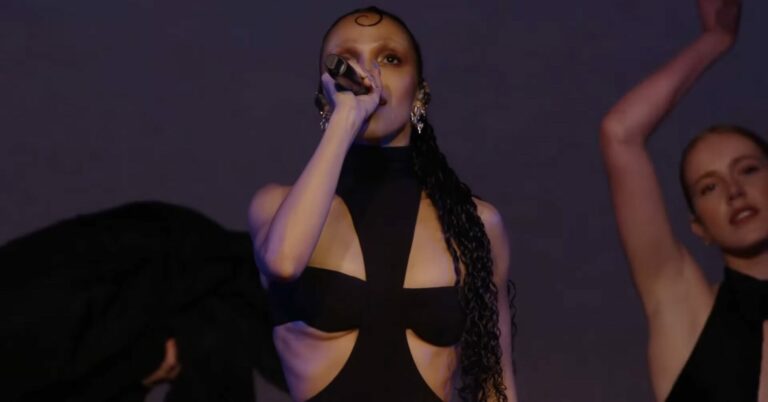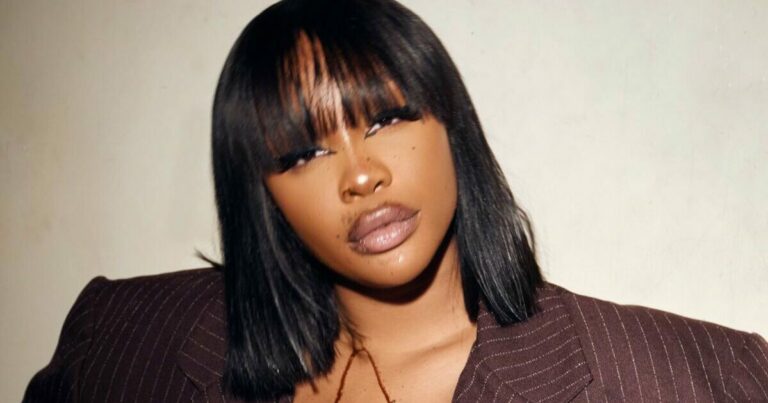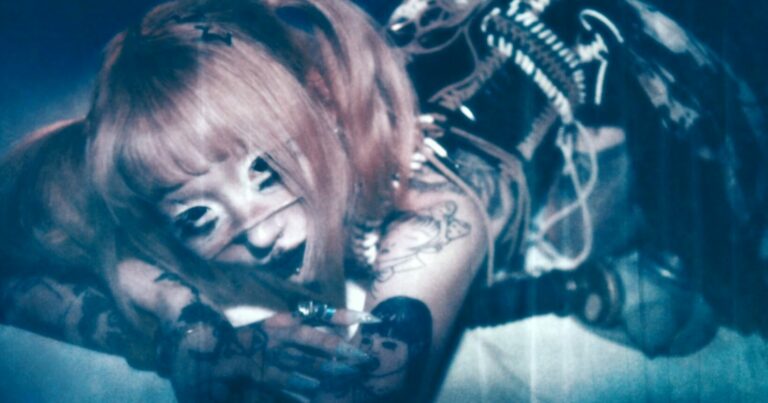Deeper is a Chicago four-piece whose origins date back to 2014, when vocalist/guitarist Nic Gohl, guitarist Mike Clawson, drummer Shiraz Bhatti, and bassist Drew McBride decided to continue using the name following the dissolution of a previous iteration of the band. After landing a deal with Fire Talk Records, Deeper released their self-titled debut LP in 2018. They were in the midst of writing and recording its follow-up, 2020’s Auto-Pain, when Clawson decided to leave the band, and they finished the album as a trio, with McBride moving to guitar and Kevin Fairbairn joining as their new bassist. While on tour in Europe, the band received the tragic news that Clawson had died by suicide. As they continued to grapple with the loss of their friend and evaluate the future of their sound, they made their third album and Sub Pop debut, the recently released Careful!. While the dark anxiety that pervaded Auto-Pain also twists its claws into Careful!, the restless paranoia of the group’s post-punk roots has now taken on a different dimension. Insistent grooves and wiry guitars are still foundational elements, but Deeper tangle them and branch out in ways both menacing and vibrant – there’s always threats looming on the horizon, but the space they’re creating starts to resemble a kind of peace.
We caught up with Deeper for the latest edition of our Artist Spotlight series to talk about the journey from Auto-Pain to Careful!, the band’s sonic evolution, their friendship, and more.
For obvious reasons, a lot of the focus when it came to releasing and promoting Auto-Pain was on mental health, and I admired the way you talked about it in interviews. Did it ever feel like too vulnerable or revealing of a process to go through?
Drew McBride: I think it’s actually something that’s really hard for other people to want to read about, so it made it kind of weird to constantly be talking about these painful elements and continue coming back to them.
Nic Gohl: It was something that got more intense as the record came out. I kind of had a few moments where I really didn’t think that that was something I wanted to talk about anymore. But it’s really hard, when you talk about something as hard as mental health and suicide. It’s never going to be very helpful for the solitude in your brain, but I feel like you need to talk about that kind of stuff or else it gets put in a closet.
DM: I think being able to champion the record as a memory to Mike was ultimately something that was good, though. It also would have been weird to not acknowledge it.
Shiraz Bhatti: The hardest part is that we were going through our own healing process as we were talking about mental health and suicide. Like, the first interview we had about it was a couple of months after Mike passed away, and it was really tough on us. But looking back, I’m not mad that we were talking about it. It was something that definitely needed to be done, especially with people reading about our take on it during the pandemic.
It took a while for you to be able to properly perform the songs on Auto-Pain after they were released. What was that stage of the process like? Was there a different kind of catharsis?
NG: The hardest song for me to play was always ‘Lake Song’, and that one was the most pointed. It was about Mike, but it wasn’t about Mike passing away. It just had to do a lot with our friendship. We were already playing that song before the pandemic hit while we were on the road, and I remember that feeling really uncomfortable. My lyrics don’t really tell you exactly what they’re trying to say upfront, and that one to me just felt like the most vulnerable at the time. But when we actually started playing Auto-Pain in full months later, that one became one of my favorites because it just kind of felt like a release. I had some different experiences during the pandemic that really made me able to forgive and be okay with what happened, if there’s a way to say that without feeling weird saying that. The songs, I feel like for all of us, when we finally started being able to play them in front of people, and people had been able to listen to Auto-Pain, it revitalized us and made us think that we’re actually doing something that mattered a little bit more than they felt like before. That definitely made it a lot easier.
Did the journey you went through with Auto-Pain bring a different kind of awareness going into Careful!, lyrically and conceptually? There’s even references to the previous record, so I’m curious if you were more conscious about the threads between them.
NG: Definitely lyrically, I was trying to build off of everything from the past two records. I mean, it references even stuff from the first album, like ‘Message Erased’ and ‘Trust’. I thought it was fun in a creative way, but it also felt right when writing those lyrics – that was one of the first passes I put through, and all those just kind of came together. I feel like that’s a thing that happens a lot with our songs; there’s a lot of words and phrases that come back, like using the term “pressure” a lot in different songs. That might just be me being lazy and not trying to figure out different words, but I’ll take the “it was a thought-out process.” [laughs] Whatever you guys wanna think.
Another word that obviously comes up on a few different tracks is “careful.” How did you decide that should be the title of the record?
NG: It just kept on coming up. The way I like to write lyrics is, I’ll have the bed of music, and I’ll just kind of do it off the top of my head, let whatever comes out come out. And then I’ll listen back to the recording and start picking from that and seeing what I liked and what I didn’t like. “Careful” just kept popping up, probably because it felt good to say, but it made a lot of sense, too, for where we were. I think subconsciously I was just kind of telling myself, “Be careful.” Things felt really dire at that time, so it just felt like the perfect word to say to everybody. It sounds kind of silly, but you just start to hear it more in your day-to-day as well. People were always telling each other, “Be careful,” so it felt like it was kind of following all of us.
Kevin Fairbairn: I don’t know if it’s happened to you guys, but if you say it in real life, people notice. They’re like, “Oh, that’s funny.” That’s gonna follow us for a couple of years now [laughs]. I can’t tell my friend “Careful” ever without him giving me a nod.
NG: But even that’s kind of a nudge to Auto-Pain. I feel like this record is challenging, in a way – there’s a lot of different kinds of sounds that we explore, but the overall music isn’t coming from a dark place like I feel Auto-Pain. It was coming from a place of, “We need to start taking care of ourselves and becoming our next chapter.” I feel like that’s kind of the idea of the record, is to find some sort of home in yourself and be healthy.
I wanted to single out the track ‘Everynight’ specifically because it seems to capture this push-and-pull between hope and wariness that comes with trying to get better. Was it challenging to balance those conflicting impulses?
DM: I think you need them. ‘Everynight’ was probably the most collaborative song on the record, and for style of music that we’re making, I think if you only had the first part of the song but you didn’t have the back half, I don’t know if that would necessarily jump out to me as a Deeper song. I feel like the back half is a nice counterweight and brings the tone into something that makes sense in the context of our songs.
NG: We do that a lot, where we have a song, and then a drone or shred moment. The end is just basically us letting ourselves have fun with it, and the beginning is the more constructed part. I feel like, naturally, that’s how we usually write a Deeper song. We wrote that in the practice space where we usually would write older songs before the pandemic.
Nic, I read in an interview that one of the reasons you gravitated to more abstract writing was because Mike told you you were writing too many love songs.
NG: Mike told me that I needed to stop talking about my now wife – so, you know, whatever, it worked out. I was singing a lot of love songs that were really pointed and obvious, and he told me that it felt a little lame to be singing about love all the time. He’s like, “You gotta hide it a little bit, make it a little more abstract.” And I was like, “That’s kind of a fun challenge.” Through that, I kind of found out how to write lyrics in a cool way.
And for that reason, it feels pretty bold to end the record with a straightforward love song in ‘Pressure’. Was it an easy decision?
NG: When I wrote the song, I didn’t really think of it as a Deeper song, necessarily. During the pandemic, I had rekindled an old friendship with a friend and who was in the original Deeper before Deeper was a band, it was a dream-pop thing. He’s a great engineer, and me and him just demoed out a few songs that I was messing around with, and that was like one of them. I was like, “This is a great song, I don’t know where it works,” and it just found its way on there. I’ve gone back and forth on whether or not I think it’s a good decision to have it on a record, but I’m glad right now it’s on the record. [laughs] It’s hard to sing about that kind of shit, especially when you’re – I don’t want to say masculine, but a lot of our stuff’s fairly aggressive, especially live. To go full in on a pretty song, that’s the harder shit for me to do.
DM: What drew me to ‘Pressure’ was, I immediately thought the lyrics and the really simple structure of it were like really compelling. We have so many songs where the guitars are constantly going back and forth, the bass is moving, the drums are doing stuff, and I felt like having a song that really leaned into the sparseness was really special.
NG: I think that was the one moment of the pandemic where I was like, “Thank God I have Natalie,” so it was the easiest one for me to write.
SB: It just feels like a riding-into-the-sunset song naturally, so having it close out the album feels really great looking back.
DM: Something that I was excited about was this idea of having the odyssey of ‘devil-loc’ into this zen of ‘Pressure’. I thought that was a cool way to do it.
NG: Also, with the title and just the vibe of the record, taking care of yourself, it felt right to end it with a positive, like, “Maybe something good’s gonna come out of this.” But I feel like the next record, we’re gonna be old and pissed off, so it’s gonna be back to angry post-punk music or something.
No, like, “aging gracefully”? No “maturing”?
NG: [laughs] Nah. No acoustics on the next record. I’m trying to hold on to my fucking youth, man. I gotta play loud fucking noise rock on the next one.
On Careful!, you also embrace the sort of electronic experimentation you were hinting at with Auto-Pain, and ‘Fame’ is probably the most striking example of that. What excited you about going further in this direction?
NG: ‘Fame’ is one of those songs that we all just felt really good about. My favorite kind of music is almost mantra-based music and things that are in loops, because to me it just gets embedded in your brain. ‘Airplane Air’ is a good example of that, and I feel like ‘Airplane Air’ and ‘Fame’ were the two statements of the record. To me, it feels more experimental than playing a post-punk all-over-the-place thing – the idea of making a beautiful atmosphere and derangedness around it, that’s the kind of music and art I feel like we all kind of want to make as Deeper going forward. I think there’s going to be a lot more songs that are based in that direction, so it feels like that’s the future of our band.
KF: I think when you’re making your third record as a band and you’ve made a couple of dozen songs, you either go into the path of you’re just gonna recreate the same things you did, or you gotta go into new territory. As Nick said, I think ‘Fame’ and ‘Airplane Air’ were the two things early on making the record where it was like, “This is somewhere we should be taking things.”
DM: For us being a “post-punk band” – I definitely see why people think that we’re a post-punk band, but also, we’re just a band, and we don’t want to be just limited to one idea of a sound. To the points that the guys made, it’s ‘Airplane Air’ and ‘Fame’, but also ‘Tele’ and ‘Pressure’ start to branch us out from just being a post-punk band. You still have some of those touch points like ‘Sub’ and ‘Glare’ that are anchored in that sound, but it starts to dip our toes into other areas that show there’s not only diversity on this record, but there will be more diversity moving forward, which is the most exciting thing.
NG: We’re trying to score a movie on the next record, so you know, just put that in there. Anybody got films that they want us to write for, we got you.
KF: We’re trying to put Yo La Tengo out of a job.
Could you each share one thing that inspires you about being in Deeper?
SB: I’m really inspired by the guys and how we feel comfortable putting out whatever and not feeling pigeonholed or backed in the corner of, “Deeper is post-punk, and they sound esoteric, and I want only esoteric songs.” I’m really thankful for these guys to push that thinking forward. Otherwise we might just keep making the same songs over and over again, if we just listened to what people are saying.
NG: I recently played in a wedding band, and love those guys, but that experience was the first time I really played with other players, like actually trying to learn songs. I was talking to Shiraz about this, I was like, “Man, I haven’t played with another drummer in years.” It made me so thankful that I have these guys to be able to make music with, because that’s the hardest part about starting a band, trying to find the people that are willing to ride and die with you. We’ve gone through a lot of shit together, and I feel like if there was any other person in this band, I don’t know if that would necessarily work. That’s definitely been the thing that throughout, especially the past five years of our evolution, has really mattered, and has gotten us to a point where I feel totally comfortable going out on the road for about two months with these guys. Because I know that we’re going to be able to keep our shit together and finish the tour, and that’s not an easy thing to do, especially with us all getting older.
DM: We’ve done a lot of tours with other bands now, and there are definitely some bands that when we meet up it’s like, “Oh, cool, your band is on the same wavelength as us.” Like our friends in Wombo, when we’re on the road, it’s a similar dynamic that just works. But sometimes we’re on the road with bands, and you can just see, when they’re not on stage, it’s like they’re kind of all just doing their own thing. It feels very genuine, being on tour, and it doesn’t feel like a burden or like it’s some slog that we have to push through. It’s fun and exciting and really fulfilling.
KF: For me, all four of us are interested in creating music together, but we’re also equally interested in creating sound together. You can play songs on Auto-Pain or Careful! a thousand times and they can kind of sound the same, but I think over time, we always try to evolve little things that we do in songs, either to perfect them or to make things work in different places with other songs in a set, or having moments where we’re droning and finding new things in the middle of the set. After you’ve been making music and touring together for a long time, you need that next level to be like, this old song can be something new couple of years down the road. It’s hard to get four people to have that same mindset, but we’re definitely always thinking of how to make things sound better or to make a new sound – not just write songs and finish them. I think that propels all of us.
DM: The older you get, and I know we’re not old, but the more conscious you have to be about wanting to play music. To a certain extent, it’s easy to be like 23 and have a band and be like, “Yeah, I just wanna like play music with my friends.” You don’t have a whole life that you’re constantly having reconcile, like, “No, this is worth my time, I wanna be doing this.” As you get older it has to be a conscious decision, so it’s almost even more meaningful because there is a trade-off to what we’re doing versus being 23 and having nothing else on our plates. It makes us not only respect each other’s time, but value each other as people.
This interview has been edited and condensed for clarity and length.
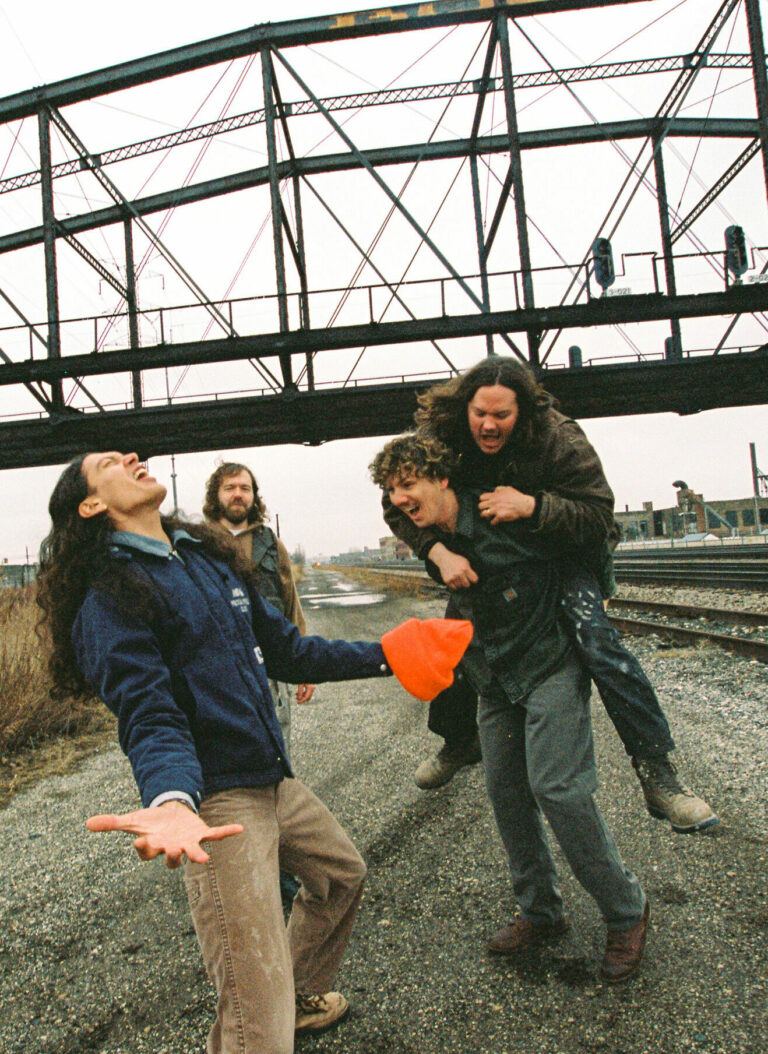

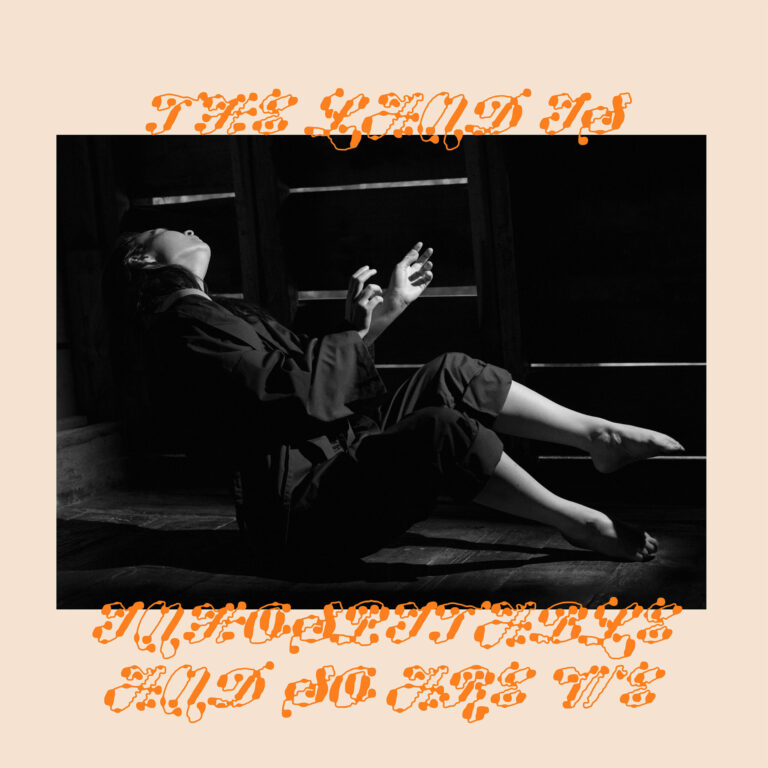
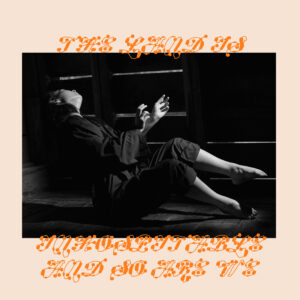 Mitski has released her new album,
Mitski has released her new album, 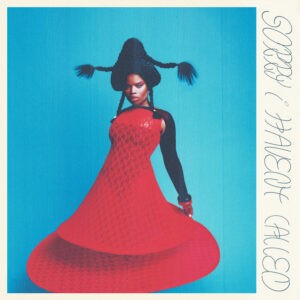 Vagabon, the project of Lætitia Tamko, has followed up her 2019 self-titled album with
Vagabon, the project of Lætitia Tamko, has followed up her 2019 self-titled album with 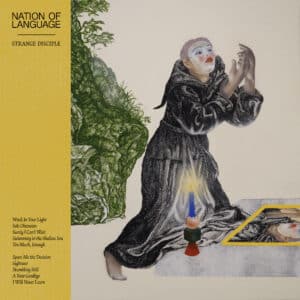

 Margo Cilker has issued her sophomore LP,
Margo Cilker has issued her sophomore LP, 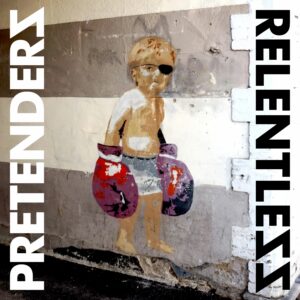 The Pretenders have dropped a new album,
The Pretenders have dropped a new album, 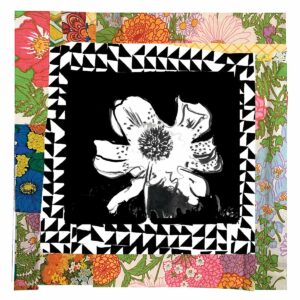 Woods have come out with a new LP,
Woods have come out with a new LP,  Neon Indian’s Alan Palomo has put out his debut solo album under his given name. Out now via
Neon Indian’s Alan Palomo has put out his debut solo album under his given name. Out now via 
